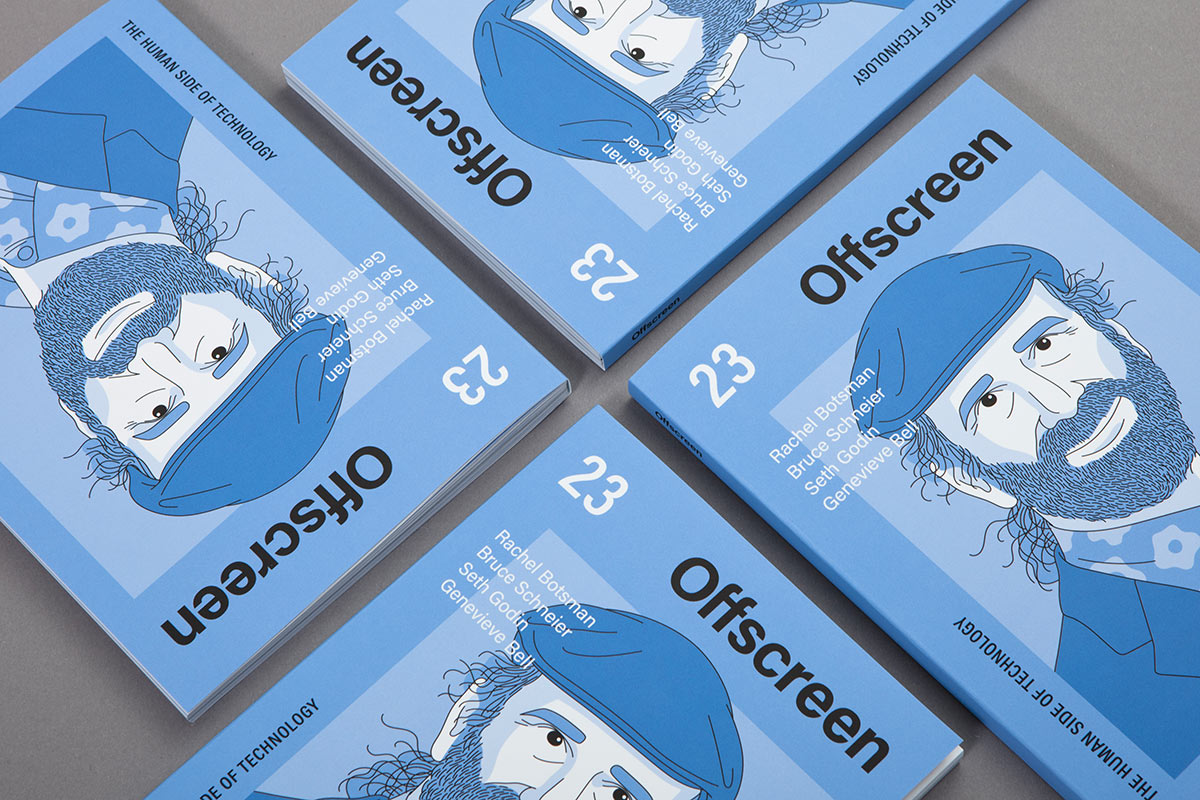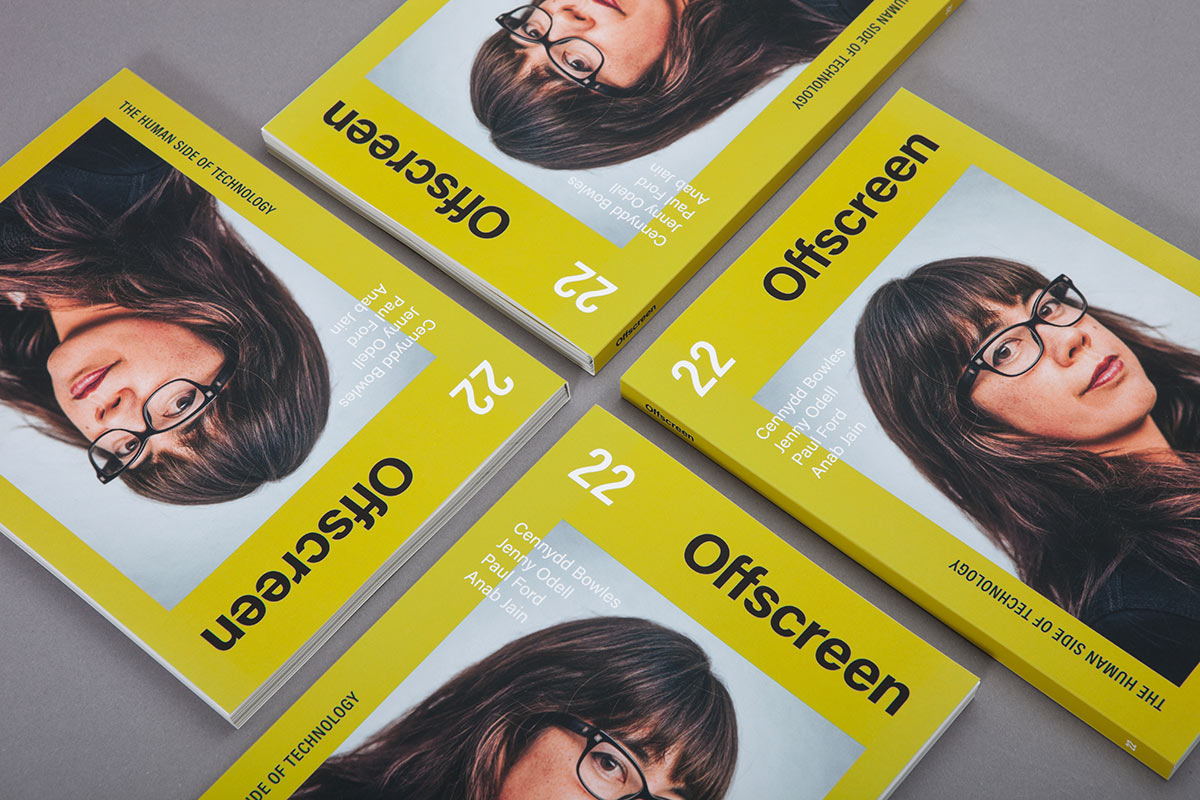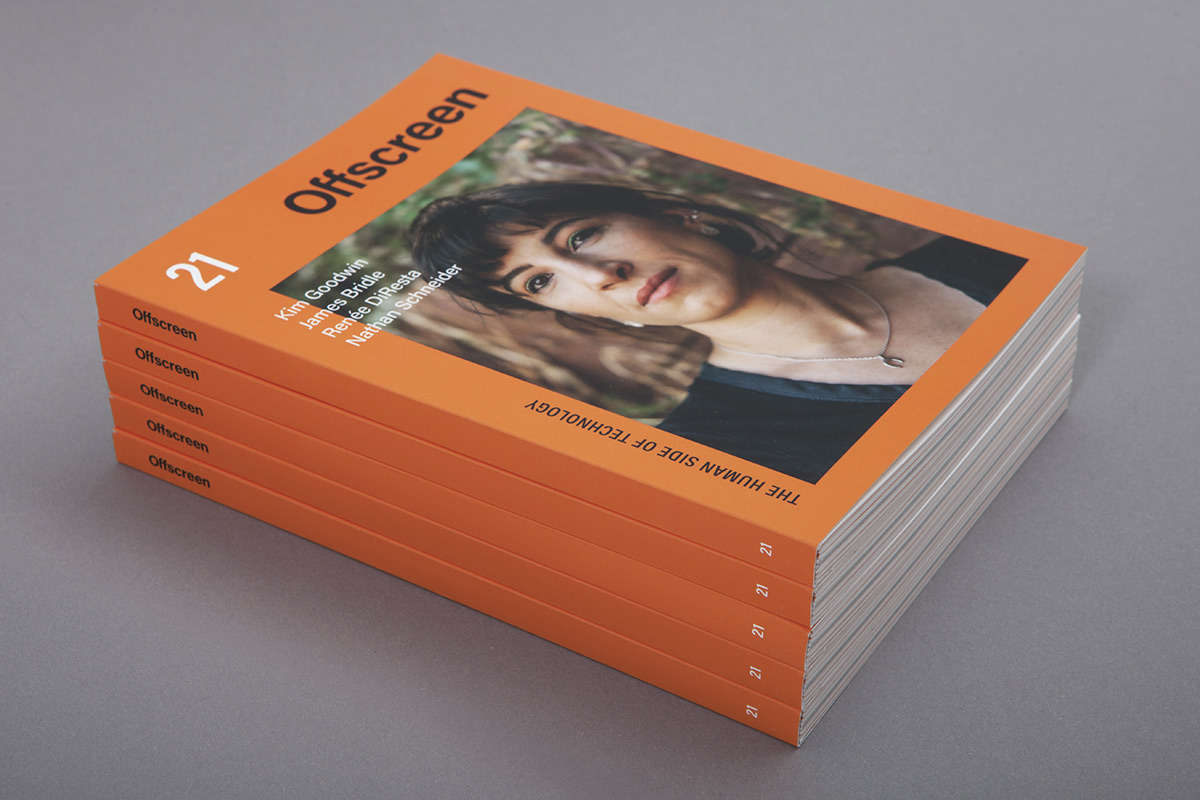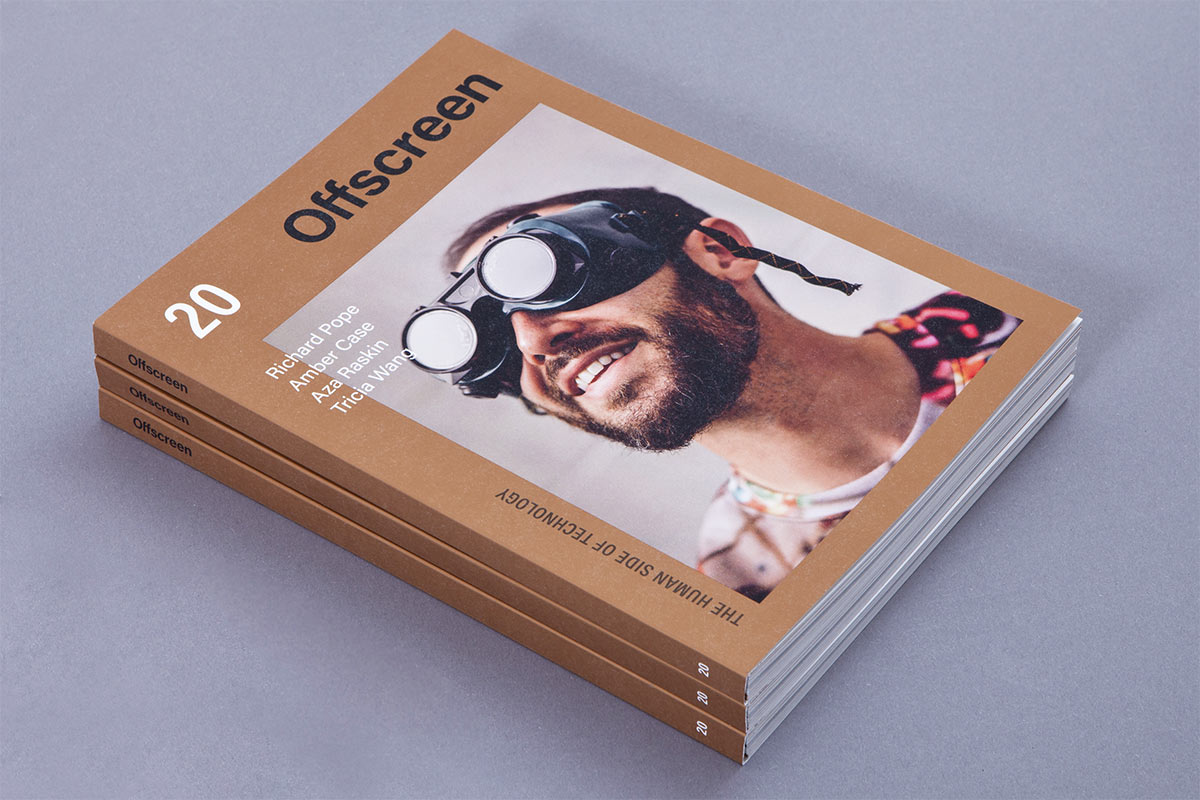Today we’re releasing Offscreen Issue 23! As usual, first some house-keeping: subscriber copies are being sent out later this week and we’ll do another big round of shipments next Monday! If you’re not a subscriber, go ahead and order your copy now to be part of one of our first shipments.
Please note that due to COVID-19 many shipments, especially those going outside the EU, will take longer to arrive!
In issue 23 we share thought-provoking conversations with:
- Rachel Botsman
As an expert on trust in the digital age, Rachel highlights the precarity of navigating today’s low-trust environments – on- and offline. - Bruce Schneier
The leading expert on cyber security offers a stern warning of the fragility of our interconnectedness and calls on a new generation of public interest technologists to step up. - Seth Godin
We pick the brain of author, marketer, and entrepreneur Seth Godin about his latest thoughts on digital marketing ethics and nurturing an online audience. - Genevieve Bell
The esteemed professor and anthropologist examines our human-computer relationships and raises important questions about our role in an AI-driven future.
As always, we relied on the generous support by our sponsors to make this issue happen: Float, Bakken & Bæck, DNSimple, SuperHi, SiteGround, and Basecamp. And of course, a big ‘thank you’ to all Patrons of this issue.
Addressing Offscreen’s diversity problem
As a publisher guided by strong ethics on inclusivity, I recognise that I have failed to live up to my own standards. While I have taken steps to diversify our overall list of contributors in recent years, the people we interview have still been overwhelmingly white, with this issue featuring an all-white interviewee line-up.
As I described in my newsletter (see issues 90 and 91), it took recent events in the US to make me realise how much I have neglected to truly educate myself about racism. Sadly, it has taken twenty-three issues of Offscreen for me to come to see how my shortcomings as a publisher have contributed to systemic and institutionalised racism in our world.
As a concrete, immediate step, I will donate 10% of net sales of issue 23 to The National Justice Project, an Australian non-profit that takes strategic legal action to advance social justice, with a focus on First Nations communities and asylum seekers. I have already made a donation of $1,712 based on sales of issue 23 to Offscreen subscribers (receipt here). I will publish another update later this year with the amount of additional donations made.
As I now try, like so very many people – including countless colleagues, friends, and Offscreen readers around the world – to more fully educate myself about racism through the many resources and tools available, I’d like to make a public commitment to do better: there will never be another issue of Offscreen with an all-white interview line-up.
I’m grateful to the Black voices who so clearly and powerfully demand that we learn how much we have been part of the problem. It is well past the time for us to assume our moral responsibility to take definitive action to combat the racism that is so firmly embedded in our societies and cultures.
But this is not just about adding people of colour to our list of interviewees. Diversifying Offscreen also means going beyond our Western-centric view of tech and giving voice to cultures that don’t share the Silicon Valley worldview. I’ve taken a lot of inspiration from Ijeoma Oluo’s book and – more specifically relevant to tech – from this interview with her:
‘The way in which tech is utilized in Nigeria is completely different than the way it’s utilized here. In Nigeria it’s about utility first and foremost. And about bringing people together face to face, to make African businesses run more smoothly, to help undo legacies of colonialism that have taken away physical infrastructure. To build that infrastructure online so that it can exist somewhere... Look at what it looks like when you’re creating the internet in a society that values the group over the individual. What does the internet look like then? Because it’s not the dream of extreme independence in Nigeria, that’s not what the internet’s built for, that’s not a goal, that’s not what you want for your kids or your family, that’s not what you set out for. So then, what does the internet look like when you have a different social structure? When you think that maybe it isn’t the idea that we’re all here pulling ourselves by our bootstraps, maybe we’re pulling our communities up, what does it look like then...?’
To reiterate my commitment: there won’t be another issue of Offscreen unless our interviews include more voices from underrepresented groups, and in particular from people of colour.
I also want to reaffirm here what I said in my newsletter: public pledges that respond to current events change little if there is no sustained effort to continue to educate ourselves and others on the issue of racism. I’m committed to doing just that through my work as the publisher of Offscreen and Dense Discovery, now and in the future.
As always, my inbox is open for your comments and suggestions.
Our first fully illustrated issue
As a magazine about the human side of technology, the photography in Offscreen has always played an important role in helping our contributors come to life for our readers. Getting a glimpse of another person in their home or work environment is a big part of what helps us relate and connect to them.
Just as I started working on this issue, the world went into pandemic lockdown. With self-isolation and social distancing becoming the new reality, commissioning one-on-one photoshoots was suddenly out of the question. Not knowing how long these restrictions would be in place, I had two options: either delay the release of this issue indefinitely, or find a solution that didn’t require photography. So I began to talk to our go-to illustrator, Agnes Lee, to try to imagine what a fully illustrated issue of Offscreen could look like.
Working from existing photography sourced from this issue’s contributors, Agnes produced the fifty-six illustrations spread throughout this issue in the span of a few short weeks. Her illustration style beautifully captures the feel and spirit of the original photos, while adding a wonderful playfulness and that sense of liveliness unique to drawings done by hand. I’m immensely grateful for Agnes’ work, and I hope you enjoy this unusual-looking issue of Offscreen – made in unusual times.



